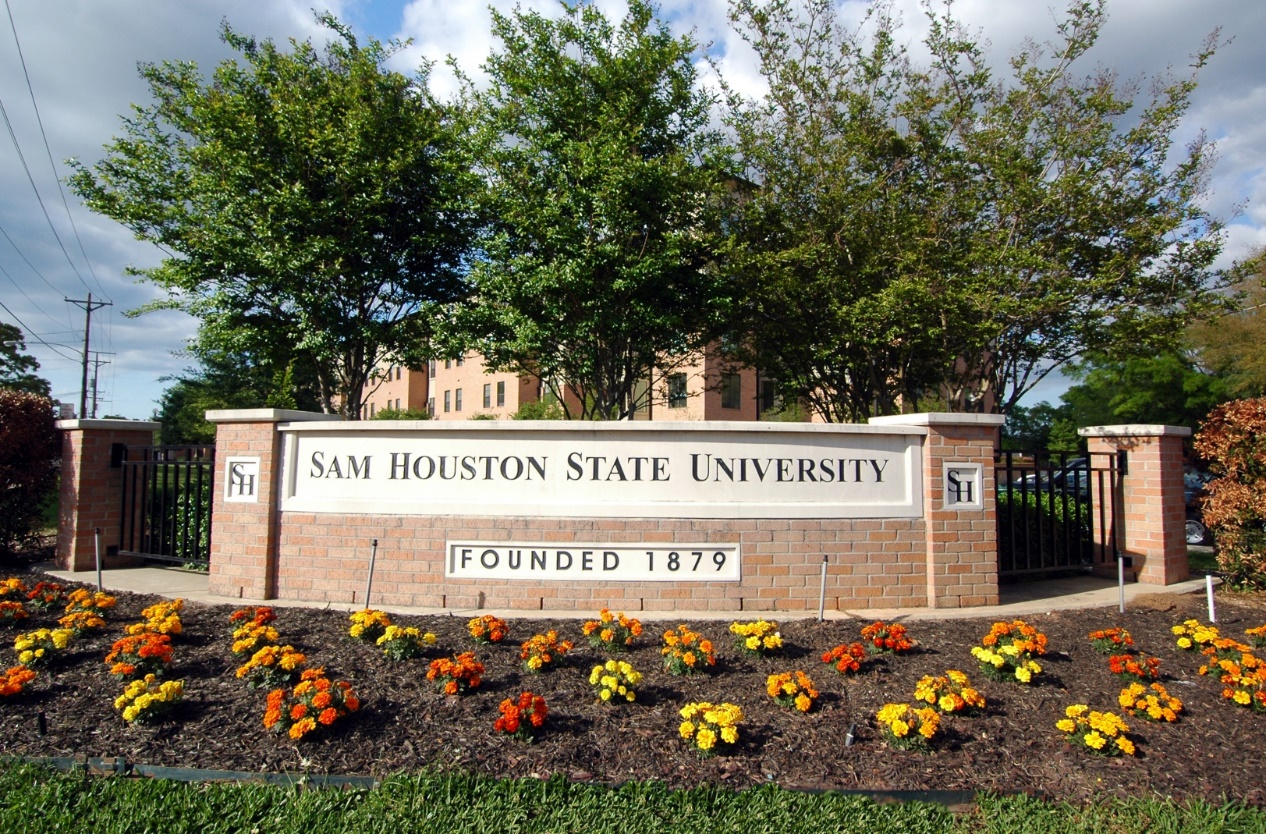The Dialogue Between Tradition and Innovation in Language Learning
Organizer:
Sam Houston State University
Date:
November 17th, 2025 (UTC -6)
Symposium Chair:
Dr. Enrique Mallen
Professor in Sam Houston State University
Personal Bio:
Dr. Enrique Mallen obtained his Ph.D at Cornell University. He regularly teaches courses on language, art and culture. He is Director of the Online Picasso Project. He has published extensively on language, art and literature. Among his most recent publications are the books Pablo Picasso: Fluctuant Identities (1900-1906) (2024), Eduardo Espina: Poesía del Deslenguaje (2024), Pablo Picasso: A Period of Transformation (1906–1916) (2023), Pablo Picasso and Dora Maar: A Period of Conflict (1936–1946) (2021) and Pablo Picasso: The Aphrodite Period (1924–1936) (2020).
Call for Papers
Background:
One of the most fundamental abilities that humans have is the capacity to learn a new language. The need to learn languages has increased significantly in a society that is becoming more interconnected by the day. For example, in order to succeed and advance in their jobs, professionals who want to work overseas might also need to learn the local language. Millions of people can now learn languages thanks to the introduction of language learning resources brought about by new technologies. Traditionally, languages have been studied in school, college, and university in a very structured manner. However, users may now start studying without limitations by downloading language-focused apps. The effectiveness of these language learning tools is demonstrated by the user's capacity to master all four abilities: listening, reading, speaking and writing. With them, users are able to learn at their own speed and on demand; learners can also track their progress thanks to a range of multimedia resources. While thousands of students may benefit from traditional teaching methods, millions of students worldwide may now make use of language learning resources created and made available through platforms like Duolingo.
Goal/Rationale:
In Content and Language Integrated Instruction (CLIL), the target language is used to learn other subjects. Virtual Internationalization occurs, engaging learners in online intercultural exchange. The use of mobile technologies is recently become widely popular, using apps and games for language learning. There is no doubt that the integration of new technologies and resources can supplement traditional approaches. Utilizing online resources such as YouTube videos and user-driven wikis can be quite beneficial. The Importance of Balancing Tradition and Innovation: a combination of structured learning and engaging experiences can optimize language learning. Integrating real-world applications and cultural context makes learning more meaningful. Also, innovative methods can keep learners motivated and interested in the learning process. Developing communicative competence is crucial for effective communication in the target language. Examples of Balancing Tradition and Innovation are: (1) using a grammar textbook (traditional) to supplement online exercises (innovative); (2) incorporating cultural insights (traditional) into online discussions (innovative); (3) leveraging technology to create interactive learning activities (innovative) while still emphasizing foundational grammar (traditional).
Scope and Information for Participants:
- Content and Language Integrated Instruction (CLIL)
- Virtual Internationalization with online intercultural exchange
- The use of mobile technologies
- The Importance of Balancing Tradition and Innovation (grammar textbooks and online exercises); cultural insights and online discussions; (3) technology-enhanced interactive learning and foundational grammar.
Topics
The main topics of this symposium are listed below.
Culture & Sociology
- Digital Sociology
- Sociology of Climate Change
- Migration and Globalization
- AI and Society
- Sociology of Technology
- Social Media Impact
- Post - Colonial Sociology
- Sociology of Mental Health
- Inequality and Social Justice
- Gender Studies in Sociology
- Core Fields (e.g., Theoretical Sociology, Historical Sociology)
- Specialized Areas (e.g., Urban Sociology, Criminology, Rural Sociology)
Literature & Translation
- Contemporary and New Century Literature
- Literary Theory and Criticism
- Digital and Network Literature
- Gender Studies in Literature
- Cross-Cultural and Literary Translation
- Technical Translation and Localization
- Classical and Ancient Literature
- Multimedia Translation and Adaptation
- Regional and Comparative Literature
- Environmental and Eco-Criticism in Literature
- Literature and Poetry
Meanwhile, submissions aligned with the overall conference theme are also welcome.
Journalism & Mass Media
- AI in Journalism
- Digital Transformation in Media
- Social Media Journalism
- Data Journalism
- VR and AR in Media
- Blockchain and Media Ownership
- Ethics in Digital Media
- Influencer and Social Media Journalism
- Cross-Platform Journalism
- Public Interest Media
- Traditional Sectors
- (Print Media, Electronic Media, Opinion Journalism)
- Specialized Journalism Types
- (Investigative, Political, Entertainment Journalism)
- Film and Film Production
- Photography and Film Production
- Theater and Film Studies
Fine Arts & Design
- Artificial Intelligence in Art
- Visual Arts
- Generative Art
- Immersive Installations
- NFTs and Digital Ownership
- Interactive Art
- Data Visualization Design
- Sustainable Art Practices
- Contemporary Art
- Art Criticism
- Animation Production
- Music and Dance Studies
- Bio-Art and Biodesign
- Traditional Media (Drawing, Painting, Sculpture)
- Digital Media (3D Animation, UX Design, Corporate Design)
- Commercial Design (Advertising, Editorial Design)
History & Philosophy
- Ethics and Applied Philosophy
- Metaphysics and Epistemology
- Political Philosophy and Governance
- Philosophy of Science and Technology
- Environmental and Climate History
- Military and Diplomatic History
- Religious and Cultural History
- Social Movements and Public History
- Post-Colonial Studies and Global History
- Philosophy of Mind and Consciousness
Submission:
Prospective authors are kindly invited to submit full papers that include title, abstract, introduction, tables, figures, conclusion and references. It is unnecessary to submit an abstract in advance. The deadline for general submission is November 10, 2025. Each paper should be no less than 4 pages. One regular registration can cover a paper of 6 pages, and additional pages will be charged. Please format your paper well according to the conference template below before submission. Paper Template Download
Please prepare your paper in both .doc/.docx and .pdf format and submit your full paper by email with both formats attached directly to sympo_huntsville@icihcs.org
Important Dates
Submission & Payment
|
Fees
|
Publication
Accepted papers of the symposium will be published in Communications in Humanities Research (Print ISSN 2753-7064), and will be submitted to Conference Proceedings Citation Index (CPCI), Crossref, CNKI, Portico, Google Scholar and other databases for indexing. The situation may be affected by factors among databases like processing time, workflow, policy, etc.
Proceeding Title: Communications in Humanities Research
Press: EWA Publishing, United Kingdom
ISSN: 2753-7064(print) / 2753-7072(electronic)
* The papers will be exported to production and publication on a regular basis. Early-registered papers are expected to be published online earlier.
This symposium is organized by ICIHCS 2025 and it will independently proceed the submission and publication process
Highlights
The symposium examined some of the recent novel approaches to language learning. Throughout, there was a focus on evaluating whether the new methods and technology under consideration are consistent with traditional language learning or if they represent a significant shift. Among the language applications that we discussed was Rosetta Stone, which teaches users vocabulary and grammar through dynamic Immersion. Its TruAccent voice recognition helps users improve users' pronunciation, and accompanying imagery helps them form stronger memories. Memrise is another study tool we examined. It uses spaced repetition to help users learn new material and review it over time. Learners follow virtual “Courses” that lead them through different “Levels” within a set of study material. The platform offers both official courses as well as user-created courses, meaning you can find dozens of languages and subjects to study. A third language application, Babbel, offers learners an incredible amount of study material, all of which is uniquely designed by their in-house team of linguists, professors and language learners. It uses translation as its main method of instruction. Finally, Duolingo is a reliable language learning application. It accelerates learning through new vocabulary and grammar in bite-sized lessons that feel like games. The lesson and practice structure are largely the same throughout the course, which may feel repetitive to some users. It is very useful for building vocabulary and practicing various grammatical concepts, however it would be very difficult to become completely fluent (or even conversationally fluent) using it by itself.
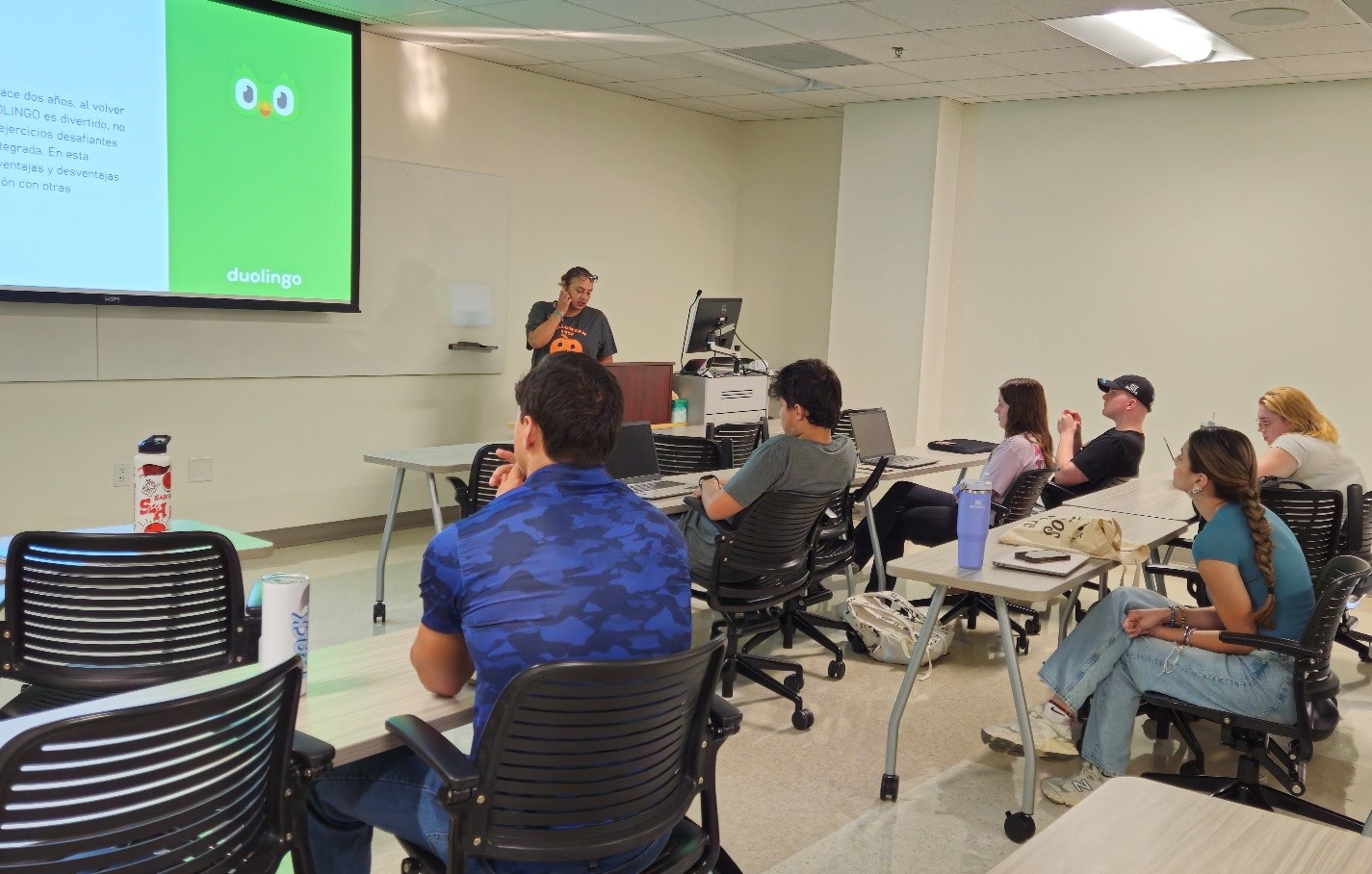
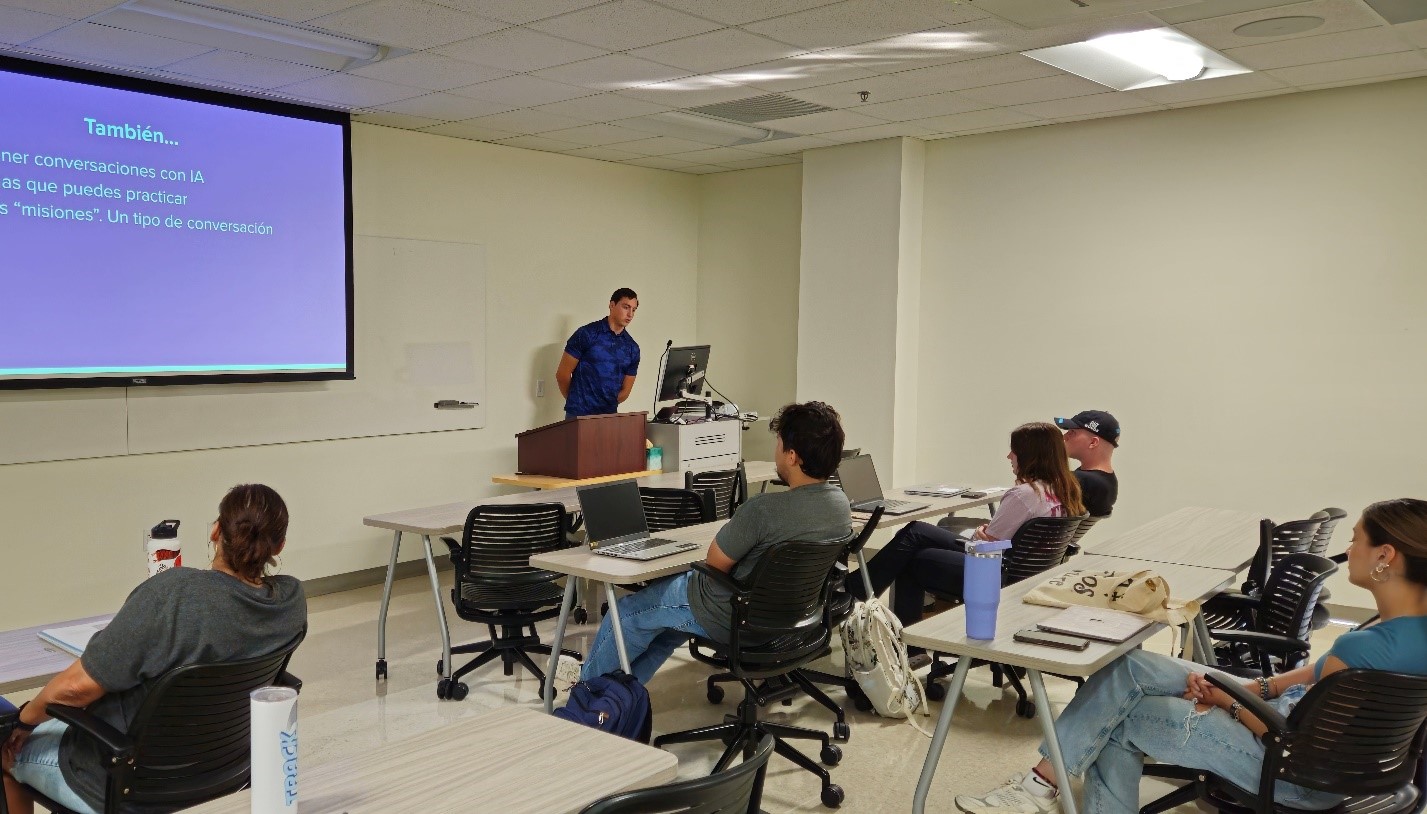
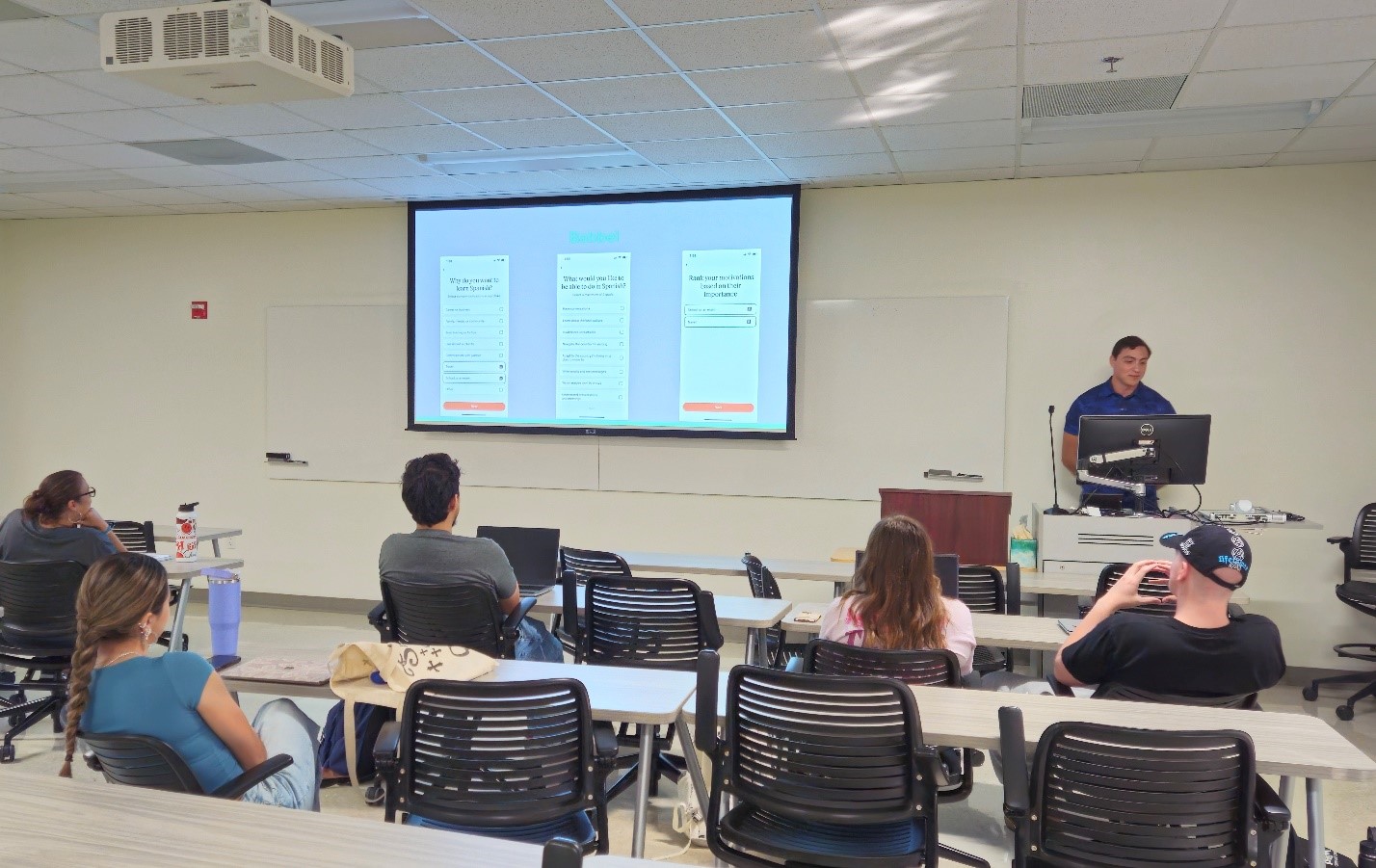
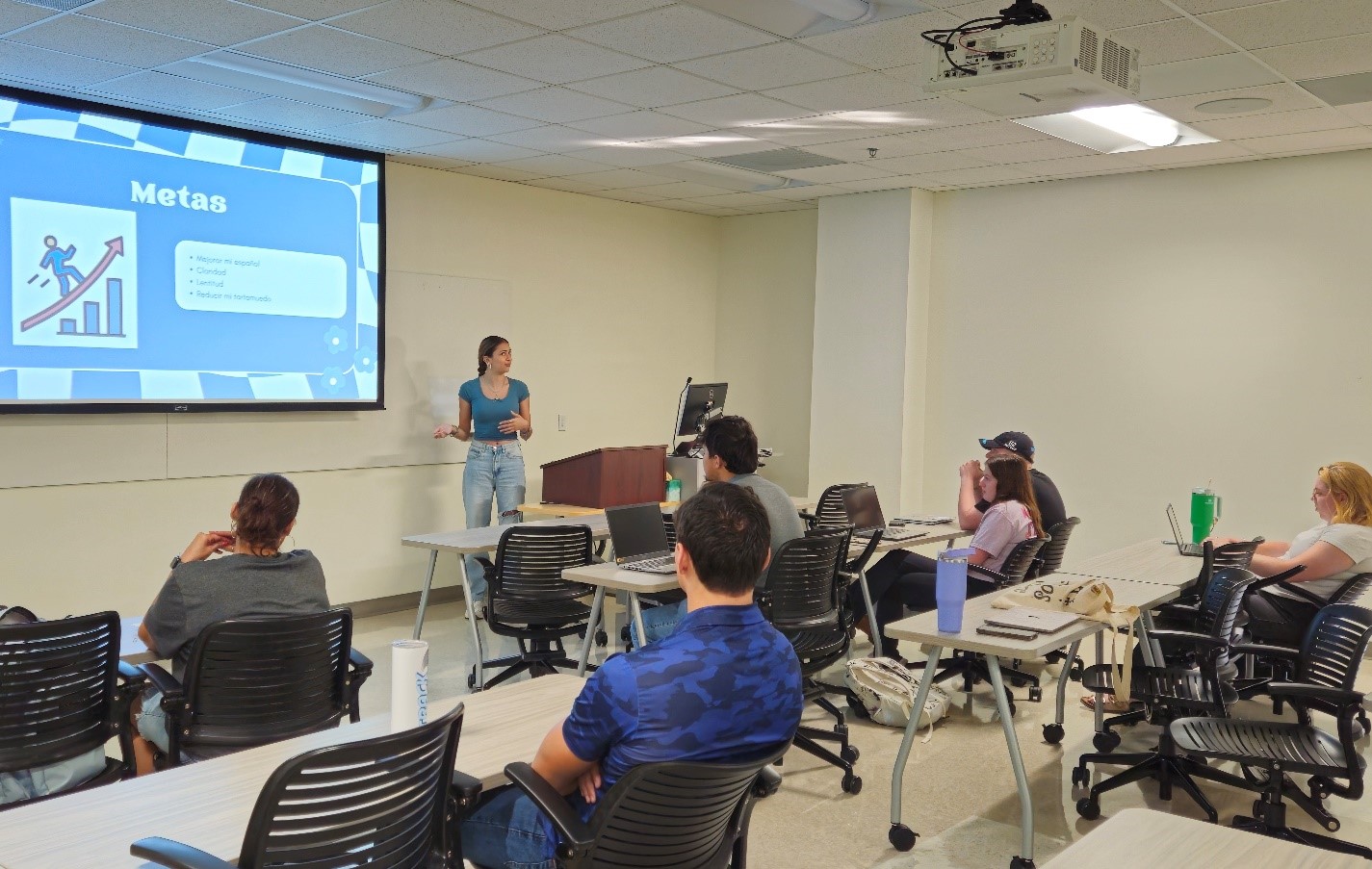
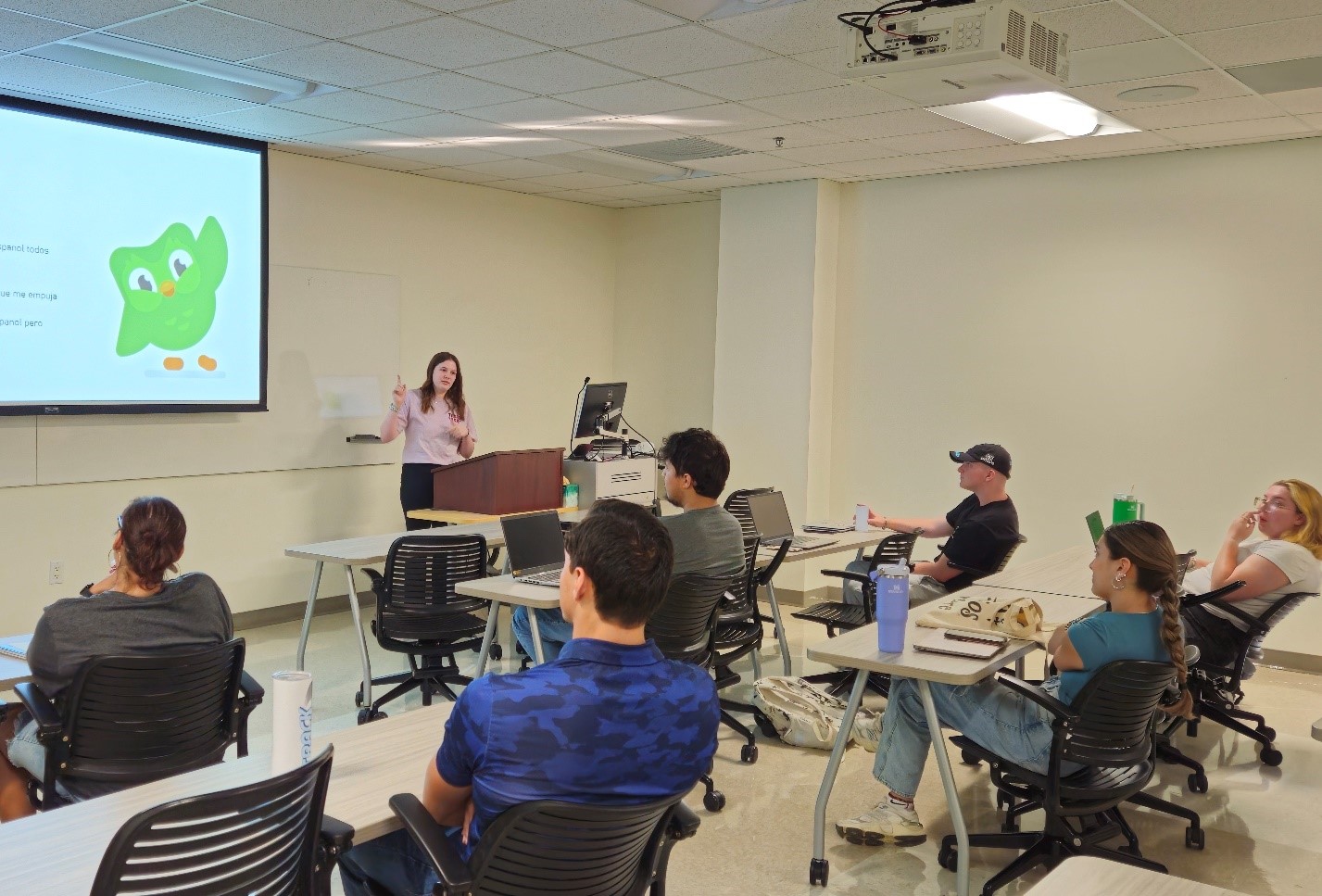
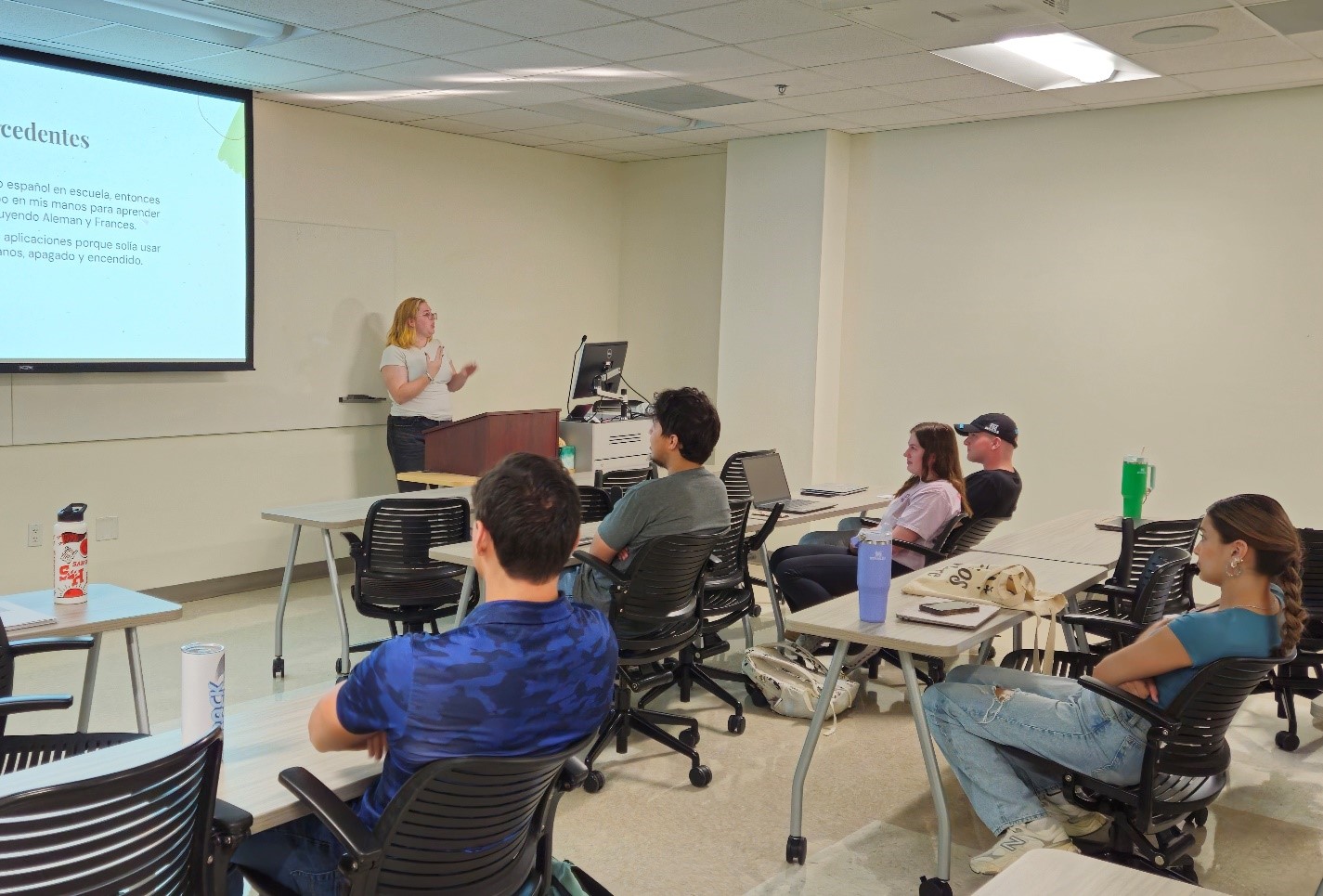
Access to Symposium: ICIHCS 2025 Symposium -- Huntsville - YouTube
Venue:
Sam Houston State University, 1905 University Ave, Huntsville, TX, USA
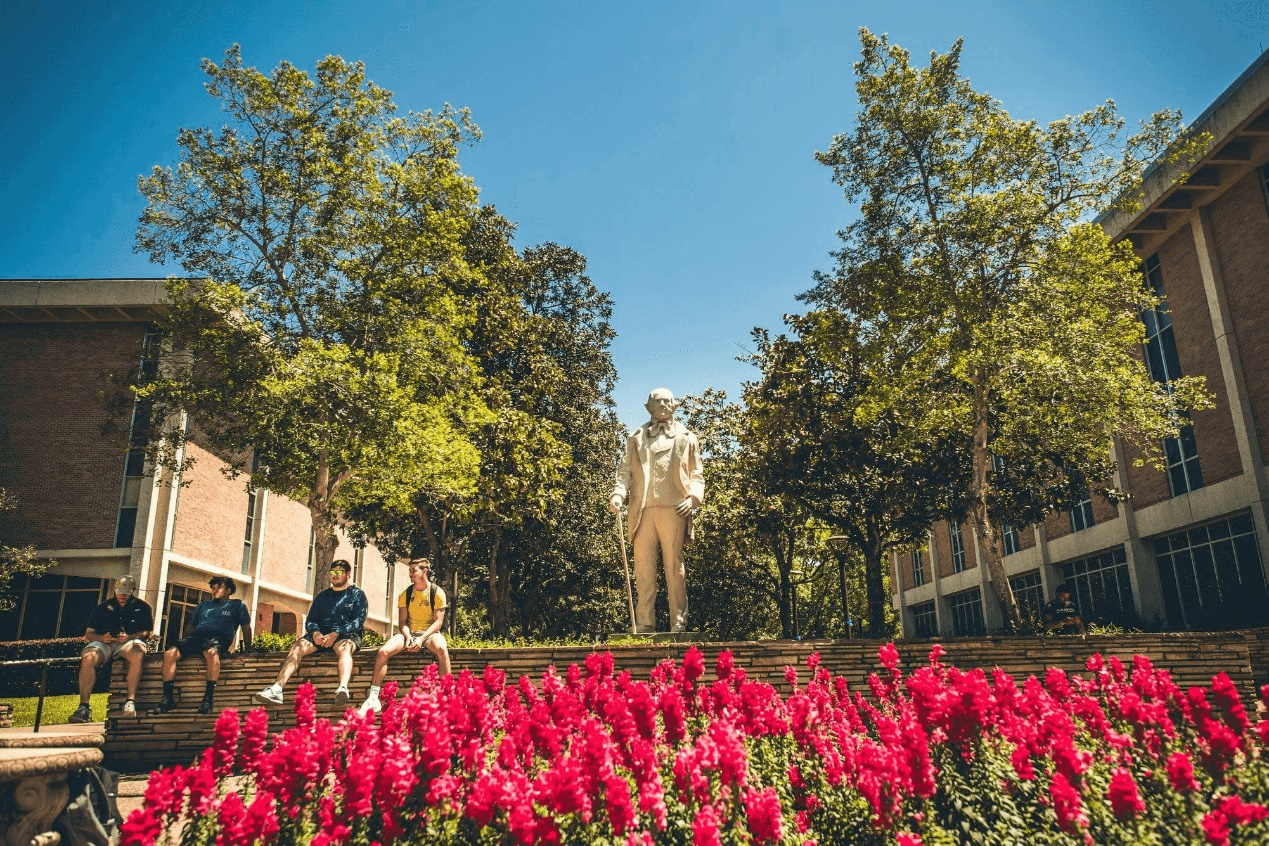
Visa:
U.S. Visas (state.gov)
In order to ensure the information is correct and up to date, there may be changes which we are not aware of. And different countries have different rules for the visa application. It is always a good idea to check the latest regulations in your country. This page just gives some general information of the visa application.
US Visa Information
The B-1/B-2 visitor visa is for people traveling to the United States temporarily for business (B-1) or for pleasure or medical treatment (B-2). Generally, the B-1 visa is for travelers consulting with business associates; attending scientific, educational, professional, or business
conventions/conferences; settling an estate; or negotiating contracts. The B-2 visa is for travel that is recreational in nature, including tourism; visits with friends or relatives; medical treatment; and activities of a fraternal, social, or service nature. Often, the B-1 and B-2 visas are combined and issued as one visa: the B-1/B-2.
Application Items
If you apply for a business/tourist visa, you must pay your $160 application fee and submit the following:
- A Nonimmigrant Visa Electronic Application (DS-160) Form. Visit the DS-160 web page for more information about the DS-160.
- A passport valid for travel to the United States with a validity date at least six months beyond your intended period of stay in the United States (unless country-specific agreements provide exemptions). If more than one person is included in your passport, each person desiring a visa must submit an application.
- One (1) 2 x 2 inches (51 x 51 mm) photograph taken within the last six months.
- If a visa is issued, there may be an additional visa issuance reciprocity fee, depending on your nationality.
In addition to these items, you must present an interview appointment letter confirming that you booked an appointment through this service. You may also bring whatever supporting documents you believe support the information provided to the consular officer.
Supporting Documents
- Invitation letter from business or school.
- Detailed CV or resume including a list of publications.
- Complete itinerary, including all meetings, conferences, and visits; include names, addresses, and telephone numbers of your hosts.
- For other materials, please refer to the U.S. Embassy or Consulate website.
NOTICE:
Should your application be denied, the organizing committee cannot change the decision of visa officer, nor will ICIHCS engage in discussion or correspondence with the visa application center on behalf of the applicant. The registration fee CANNOT be refunded when the VISA application of individual being denied.
